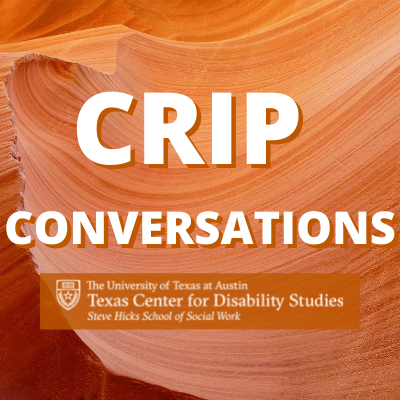
Crip Conversations Series
Watch all previous Crip Conversations on our YouTube page!
Disability Studies is an academic field that is both interdisciplinary and multidisciplinary. Scholarship from a vast array of disciplines including social work, anthropology, philosophy, sociology, communication and media studies, economics, political science, architecture, law, gender studies, literature, and the arts (to name a few) contribute to this field. Medical framing and terminology are discussed and analyzed however they exist in tension with other models and frameworks of disability that posit disability outside of biology.
Disability Studies focuses on how disability is constructed, viewed, and understood culturally, politically, economically, and socially. People with disabilities are centered and their experiences in the world create the context for discussion. Emerging approximately 30 years ago, Disability Studies uses a critical lens similar to fields such as Gender Studies, Chicano Studies, and Queer Studies to interrogate truths and uncover subjugated knowledge.
Philosophy
Disability Studies is interdisciplinary, examining the experience of disability from a spectrum of “truths”. However, people living with disabilities and their experiences are integral to what we learn and understand. Disability Studies scholars are lawyers, philosophers, social workers, medical professionals, public health officials, educators, artists, anthropologists, architects, and more. Scholars are encouraged to think inclusively and creatively. The deconstruction of assumed knowledge, stigma, and bias are integral to the field with a focus on unraveling the boundaries between “normal” and “abnormal” and what these terms actually mean. Disability is understood to be conditional to environmental and social factors as well as physical, cognitive, and mental factors (Adams, Reiss, & Serlin, 2015). The term “disability” has not remained stable throughout history and will likely continue to change. This is an important facet of disability.